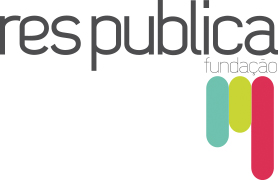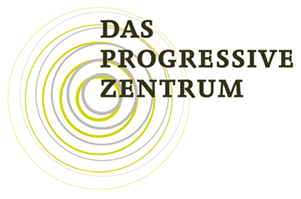
next social
Publication
Stuck on the Rubicon? ‘Socializing’ the European Semester through the European Pillar of Social Rights
June 28, 2019Author: Alexander Adranghi , Christina Koutny, Corti Francesco , Davide Sardo, FEPS YAN, Muireann O'Dwyer , Pierre Vanheuverzwijn
The European Pillar of Social Rights (EPSR) is the Commission’s flagship initiative to achieve the objective of a ‘social triple-A’ for the European Union. First introduced in the 2015 State of the Union address, the Pillar has become a reality in the EU legal and policy framework in April 2017, with the presentation of a package of acts and documents forming its backbone. In November 2017, the EPSR has been officially recognised by the EU institutions by means of an Interinstitutional Proclamation.
The future of this initiative seems to be primarily bound to its capacity to steer Member States’ policies through the mechanism of the European Semester. As the cornerstone of the post-crisis regime of economic policy coordination in the EU, the Semester has been criticized in the academic debate for its role in the subordination of social goals to fiscal and macroeconomic imperatives and the stranglehold of economic-oriented policy actors on the process. The need to rebalance the economic and social dimensions of the Semester was also explicitly included by the Commission amongst the EPSR’s declared objectives.
Within the current debate over the scope and standing of the European Pillar of Social rights, this paper aims to examine how the EPSR can contribute to the rebalancing of the Semester towards social policy objectives. To this end, the paper conducts an in-depth qualitative analysis of the contents of the Semester 2018 and compares such contents to those of the previous years. Moreover, the FEPS YAN working group rely on fourteen interviews with key decision-makers and policy officials in order to determine the impact of the EPSR on the actual functioning of the policy-making procedures within the Semester.
related publications
-
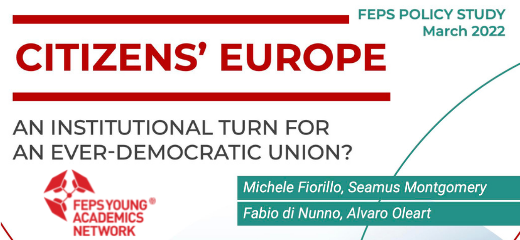
Citizens’ Europe - An institutional turn for an ever-democratic union?
read more -
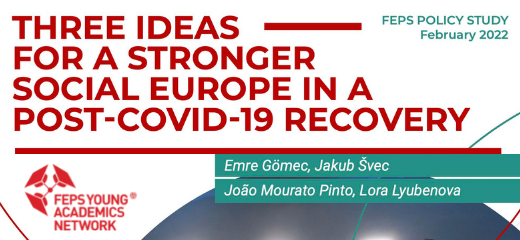
Three ideas for a stronger Social Europe in a post- Covid 19 recovery
read more -
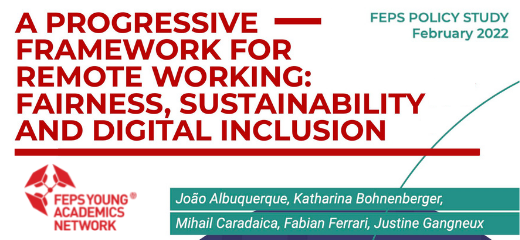
A Progressive Framework for Remote Working: Fairness, Sustainability and Digital Inclusion
read more -
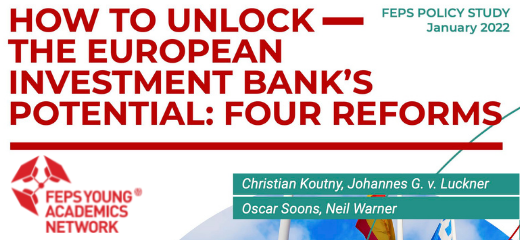
How to unlock the European Investment Bank’s potential: four reforms
read more -
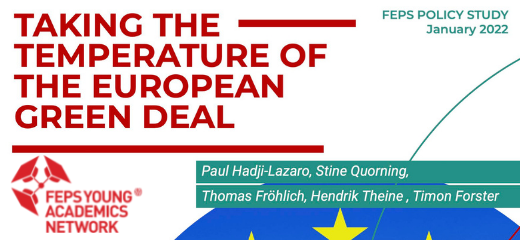
Taking the temperature of the EU Green Deal
read more -
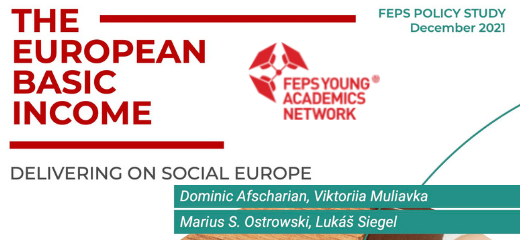
The European Basic Income – Delivering on Social Europe
read more

























